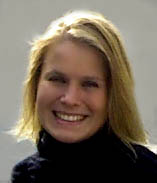| Mainz Schema Therapy Training ProgramThe Institute for Psychotherapie in Mainz (ipsti-mz), along with the Schema Therapy Training Program, was established in 2010. The Mainz Group Schema Therapy Program was certified by ISST in 2012. We established specific workshops for forensic psychotherapists, as of 2014, and added auxiliary professional workshops as of 2015.
The Mainz Schema Therapy Training Program Directors are Friederike Vogel and Neele Reiss. The program consists of many additional external ISST certified trainers and supervisors who provide specific workshops, giving trainees an opportunity to be exposed to many different "role models" applying schema therapy. Please review the many workshops we offer, and register on our website at: http://www.ipsti-mz.de/events/ Neele Reiss and Friederike Vogel: Training Program Directors
|
Description of WorkshopsTrainer-Supervisor Workshop (ISST certified): The trainer-supervisor workshop is required for certification as a trainer supervisor. This is the webinar that covers the ISST requirements for training and supervision that counts toward certification. Additionally, participants will learn how to deal with difficult situations in supervision. If you are close to completing the requirements for Advanced level ST certification you may attend the webinar since it is given at most twice a year in English and once a year in German. Advanced Methods: Skills development as a Schema Therapy Supervisor This is a workshop for ISST certified Schema Therapy supervisors, who wish to develop their supervising skills. Difficult situations in supervision will be presented and tips given on how to deal with these situations. Additionally, participants are welcome to bring up their own difficulties in supervision situations. These difficulties will be discussed and solutions practiced in role plays. Supervision Workshop: Participants can bring their own cases (including videomaterial of sessions), discuss the schema therapy treatment conceptualization, specific techniques applied or specific difficult situations in the treatment room with a Schema Therapy supervisor. Difficult situations can be practiced in role plays with the supervisor. Case conceptualization and Schema Therapy treatment in the forensic patients (focus on Cluster B Personality Disorder): This workshop specifically focuses on difficult treatment situations with patients from a forensic setting or inmates. A focus will be on patients with a Cluster B personality disorder, especially Antisocial Personality Disorder. Advanced Methods: Imagery Rescripting This is a workshop for practioners, who want to broaden their knowledge on imagery rescripting for different patient populations and in different settings. Self Therapy Workshop: This workshops focuses on schemas and modes activated in psychotherapists by their patients. Every participant will have time to work on their own schemas and modes that get activated in the treatment room with different techniques used in Schema Therapy. Schema therapy for Cluster C Personality Disorders Schema Therapy (ST) is developed for patients with personality disorders and chronic Axis I disorders, who do not profit from regular CBT. ST was first extensively tested in Borderline PD with remarkable results (Giesen-Bloo et. al 2006). But many therapists more often see patients with cluster-C personality disorders, who are quite rigid in their avoidance and obsessional patterns. This workshop will present the schema-mode models of cluster-C personality disorders and the main Schema Therapy techniques that can be used to address these modes. The workshop leaders will demonstrate some of the major techniques and participants can practice in pairs. Advanced Methods: Empathic Confrontation in Schema Therapy This is a workshop for clinicans, who want to broaden their knowledge on empathic confrontation for different patient populations and in different settings. A special focus will be on difficulties such as suicidality and overcompensating coping modes. Introduction to Schema Therapy: This is a basic introduction workshop focusing on the general concept of modes and schemas. Case conceptualizations in Schema Therapy will be practiced in the workshop and demonstrations of how the case conceptualization can be done with a patient are given. Participants can practice their newly developed skills in role-plays. Introduction to Schema Therapy in the forensic setting: This is a basic introduction workshop focusing on the general concept of modes and schemas with a focus on forensic patients. Case conceptualizations in Schema Therapy will be practiced in the workshop and demonstrations of how the case conceptualization can be done with a patient are given, all focusing on forensic patient examples. Participants can practice their newly developed skills in role-plays. Schema Therapy Treatment Strategies This workshop focuses on cognitive, behavioral and experiential treatment strategies used in Schema Therapy. A special focus will be on imagery rescripting and chair techniques. Difficult treatment situations for auxiliary therapists This workshop is especially designed for auxiliary therapists, who work in a treatment team and wish to use Schema Therapy treatment strategies in their setting and with their specific treatment population. Short interventions that auxiliary professionals can use in their specific setting will be discussed and practiced in role-plays. Working with the therapeutic relationship and empathic confrontation in Schema Therapy This workshop focuses on the therapy relationship defined as a method of intervention as well as empathic confrontation of coping modes used in Schema Therapy. Demonstrations will be given. Participants can practice their newly developed skills in role-plays. | Workshop Descriptions ContinuedSchema Therapy for Narcissistic Personality Disorder Narcissists are notoriously difficult clients—often intelligent, charming, and self-confident—they also tend to be arrogant, condescending, incapable of empathy, and possessed with a sense of entitlement. While interesting and challenging, they can also make you feel downright uneasy... In this seminar, we’ll discuss: • Schema Therapy, an evidenced-based, active, and integrated treatment approach that focuses on changing lifelong, biased emotional and self-defeating behavioral patterns through cognitive restructuring, balanced attachment, limited re-parenting work, behavioral-skills training, and experiential techniques. • How to use empathic confrontation to gain and maintain leverage in therapy and avoid power struggles with narcissists • Maintaining empathy and compassion through curiosity, and helping the client to begin to understand his or her own behavior and its impact on other people Format: The seminar will include lecture, video presentation, role-plays, clinical group exercises, and customized “scripts” for handling particularly challenging moments in therapy. The workshop will be held in English. Objectives are to help Participants do the following: • Acquire a working understanding of schema theory and schema mode work • Learn to apply specific clinical strategies with narcissistic clients • Integrate concepts from interpersonal neurobiology—demonstrated as powerful tools for accelerating treatment effectiveness. • Identify their personal schemas and modes—a major obstacle to treatment • Use self-work: to bypass intense reactions linked to personal triggers, activated by the narcissist • Create and adapt custom-fitting scripts to fortify leverage, to utilize “empathic confrontation”, and to set limits…under a variety of conditions relevant to narcissism. Schema Therapy for Couples with a Narcissistic Partner This workshop will offer a proposal for interventions and strategies to work with one of the most challenging issues in couple’s therapy: Narcissism. Wendy Behary, author of Disarming the Narcissist, is an expert when it comes to addressing the resistance and rigidity that often shows up in complex patterns of self-protection and aggression. She proposes a means for creating and enhancing leverage to avoid power struggles in the treatment of couples and in the treatment of individuals who are dealing with / living with a narcissist. The workshop will provide therapists with some additional insights for helping clients dive deep into an understanding of the issues of narcissism—manifested in their partner’s emotional and behavioral patterns, with an appreciation for the coping modes that show up as bravado while masking inadequacy, intolerable shame, sadness and loneliness. Practitioners will learn to identify and model strategies for partners, such as: how to engage in active limit setting, empathic confrontation, and enforcing consequences with the narcissist. In this 3-hour, 3-session course, we will meet three consecutive weeks for 60 minutes each time. Included in this Curriculum:
Learning Objectives:
|
Mainz Schema Therapy Training Program Workshop Schedule: WS 1: Introduction into Schema Therapy – focus on a forensic setting Date: 16 - 17 January 2017 Trainer/Supervisor: Dipl. Psych. Claudia Knörnschild Supervision – Workshop Schema Therapy Date: 24 February 2017 Trainer/Supervisor: Dipl. Psych. Nadine Scheld WS 1: Introduction into Schema Therapy and Case Conceptualization Date: 10 – 11 March 2017 Trainer/Supervisor: Dipl. Psych. Dr. Neele Reiss, Dr. med. Friederike Vogel Chair Work in Schema Therapy – Intensive Workshop Date: 29 April 2017 Trainer/Supervisor: Dipl. Psych. Nadine Scheld WS 2: Therapeutic Strategies in Schema Therapy (focus on chair work and imagery rescription) Dates: 19 – 20 May 2017 Trainer/Supervisor: Dipl. Psych. Dr. Neele Reiss, Dr. med. Friederike Vogel Schema Therapy in Trauma Disorders Dates: 23 – 24 June 2017 Trainer/Supervisor: Dipl. Psych. Nadine Scheld WS 3: Therapeutic Relationship in Schema Therapy and Empathic Confrontation Date: 30 June 2017 Trainer/Supervisor: Dipl. Psych. Dr. Neele Reiss, Dr. med. Friederike Vogel Supervision- Workshop Schema Therapy Date: 1 July 2017 Trainer/Supervisor: Dr. med. Katharina Schmidt Supervision- Workshop Schema Therapy with focus on forensic modes Date: 16 September 2017 Trainer/Supervisor: Dr. med. Wilhelm Prange Schema Therapy in Trauma Disorders Dates: 29 – 30 September 2017 Trainer/Supervisor: Dipl. Psych. Nadine Scheld Supervision – Workshop Schema Therapy Date: 20 October 2017 Trainer/Supervisor: Dipl. Psych. Nadine Scheld Supervision – Workshop Schema Therapy with focus on forensic modes Date: 10 November 2017 Trainer/Supervisor: Dr. med. Wilhelm Prange Chair work in Schema Therapy – Intensive Workshop Date: 18 November 2017 Trainer/Supervisor: Dipl. Psych. Nadine Scheld Self Therapy in Schema Therapy Dates: 24 - 25 November 2017 Trainer/Supervisor: Dr. med. Katharina Schmidt WS 4: Schema Therapy for Cluster C Personality Disorder Date: 8 December 2017 Trainer/Supervisor: Dr. med. Friederike Vogel, Dr. med. Katharina Schmidt WS 4: Schema Therapy for Cluster B Personality Disorder Date: 9 December 2017 Trainer/Supervisor: Dr. med. Friederike Vogel WS 4: Case Conceptualization and Application in a forensic setting Dates: 11 – 12 December 2017 Trainer/Supervisor: Dipl.-Psych. Claudia Knörnschild |




